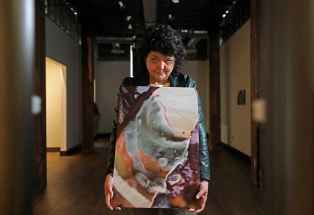Private addiction-recovery centre lays off a quarter of its staff
Read this article for free:
or
Already have an account? Log in here »
To continue reading, please subscribe:
Monthly Digital Subscription
$0 for the first 4 weeks*
- Enjoy unlimited reading on winnipegfreepress.com
- Read the E-Edition, our digital replica newspaper
- Access News Break, our award-winning app
- Play interactive puzzles
*No charge for 4 weeks then price increases to the regular rate of $19.00 plus GST every four weeks. Offer available to new and qualified returning subscribers only. Cancel any time.
Monthly Digital Subscription
$4.75/week*
- Enjoy unlimited reading on winnipegfreepress.com
- Read the E-Edition, our digital replica newspaper
- Access News Break, our award-winning app
- Play interactive puzzles
*Billed as $19 plus GST every four weeks. Cancel any time.
To continue reading, please subscribe:
Add Free Press access to your Brandon Sun subscription for only an additional
$1 for the first 4 weeks*
*Your next subscription payment will increase by $1.00 and you will be charged $16.99 plus GST for four weeks. After four weeks, your payment will increase to $23.99 plus GST every four weeks.
Read unlimited articles for free today:
or
Already have an account? Log in here »
Hey there, time traveller!
This article was published 25/09/2019 (2266 days ago), so information in it may no longer be current.
A quarter of the staff at a private addiction and mental health recovery centre in Gimli has been laid off to keep operations afloat due to dropping demand for its costly detox and rehabilitation services.
On Monday, Aurora Treatment and Recovery Centre released 23 staff members across all departments, ranging from maintenance to counselling. About 60 per cent of the positions were full-time.
“These are never easy decisions, but they are decisions that are necessary to take for a long-term health of the organization,” founder and chairman Paul Melnuk told the Free Press.
At full capacity, the 70-bed facility requires about 100 staff members to conduct daily operations. It was at capacity in February, Melnuk said, but the past six months have slowed down. There have been between 30 to 35 patients at the facility in recent months, he said.
Meanwhile, the wait to access the Addictions Foundation of Manitoba’s community-based services in Gimli is 28 days.
90-day stay costs $40,000
The private Gimli recovery centre offers immediate detox programming, as well as treatment programming between 30 to 90 days long. The 30-day option, which includes detox and continuing care, costs close to $20,000 while a 90-day stay is upwards of $40,000.
It is one of only a handful of private rehabilitation facilities for addicts in the province. The province does not cover private facility costs, so any rehabilitation coverage depends on a patient’s insurance.
The layoffs come three months after the centre closed Whispering Pines, its small Teulon, Man.-based addiction treatment centre. Its Gimli location, which opened in 2015, and Winnipeg counselling services are still up and running.
“The fact that we could take people in without any wait time was really a relief for a lot of people who were in a really desperate situation.”
– Kathleen Helgason, Whispering Pines counsellor
Earlier this year, Melnuk told media outlets the centre’s decision to shutter Whispering Pines was due to its size and scope being too small to provide adequate care.
A counsellor who worked at Whispering Pines for nearly a decade (Aurora Treatment and Recovery Centre bought it in 2018), Kathleen Helgason said the Teulon facility’s staff were saddened when it closed because it was a unique option for patients.
“The fact that we could take people in without any wait time was really a relief for a lot of people who were in a really desperate situation,” Helgason said.
She added there is a need for more treatment options, not less. “But we were told we were not profitable enough to remain open.”
Wait for public treatment as long as 150 days
The wait for public addiction treatment services in the province can be weeks, if not months. In a statement, AFM spokeswoman Denisa Gavan-Koop said wait times for in-house treatment in Manitoba can range between 26 to 150 days.
At a time when Manitoba is experiencing a meth crisis and fatal opioid overdose counts continue to rise across the country, advocates point to solutions including subsidies for private care and a need for more public beds — especially long-term ones.
“It’s really unfortunate [Aurora] has these empty beds and people need this service and they can’t access it,” said Rebecca Rummery with Overdose Awareness Manitoba. “Not everyone can afford that price tag.”
“It’s really unfortunate [Aurora] has these empty beds and people need this service and they can’t access it.”
– Rebecca Rummery, Overdose Awareness Manitoba
Rummery’s boyfriend died from an overdose in 2018 while he was on the waitlist for public services. AFM left him a message the day he was admitted to the hospital after experiencing what would be deemed a fatal overdose, she said.
Long wait times have left some families scrambling to find care in other provinces where there is a greater selection of private care options that charge lower prices than Manitoba facilities such as Aurora Treatment and Recovery Centre, Rummery said.
“The demand right now is for publicly funded beds to address the drug crisis,” said Marion Willis, the founder of Morberg House, a long-term treatment facility and transitional house for men experiencing addiction in St. Boniface.
Willis said there is a real need for long-term beds as it takes 120 days to stabilize a meth addict.
No one can afford a private stay under 30 days, she said, let alone one longer than that. And while she noted addicts come from all walks of life, Willis said they often seek out treatment at their lowest point, when they do not have funds for care.
maggie.macintosh@freepress.mb.ca Twitter: @macintoshmaggie

Maggie Macintosh reports on education for the Winnipeg Free Press. Funding for the Free Press education reporter comes from the Government of Canada through the Local Journalism Initiative.
Our newsroom depends on a growing audience of readers to power our journalism. If you are not a paid reader, please consider becoming a subscriber.
Our newsroom depends on its audience of readers to power our journalism. Thank you for your support.
History
Updated on Wednesday, September 25, 2019 6:36 PM CDT: Fixes formatting of outtakes.















